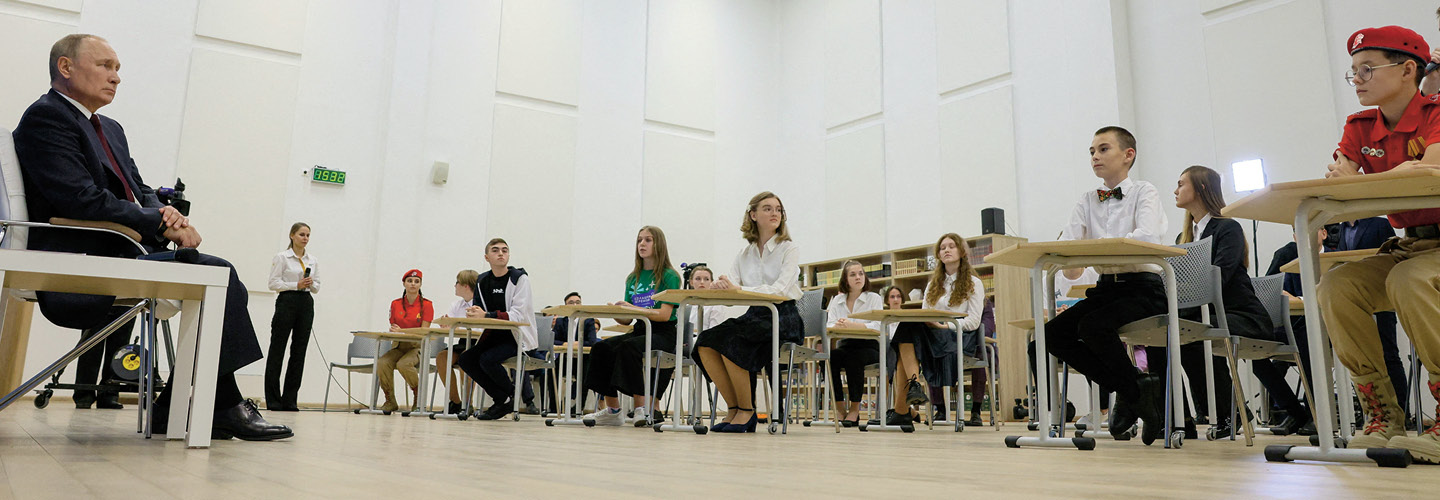Last March, Irina began noticing strange changes in the Moscow school where she was a ninth-grader. A computer class was replaced with a mandatory viewing of a state television report on Ukrainians surrendering to Russian troops and a lecture explaining that only information from official Russian sources was to be trusted.
Irina’s friends had at first been scared or confused by the war in Ukraine, which began in February 2022. But that began to change.
“They suddenly started repeating everything after the television,” she says. “They suddenly started saying that this is all deserved, that this had to happen. They couldn’t even attempt to explain this to me.”
Irina was a ninth grader at her school in Moscow. Last March, she began noticing strange changes at the school. A computer class was replaced with the viewing of a state television report on Ukrainians who surrendered to Russian troops. There was also a lecture explaining that only information from official Russian sources was to be trusted.
Irina’s friends had at first been scared or confused by the war in Ukraine. The war began in February 2022. But that began to change.
“They suddenly started repeating everything after the television,” she says. “They suddenly started saying that this is all deserved, that this had to happen. They couldn’t even attempt to explain this to me.”

